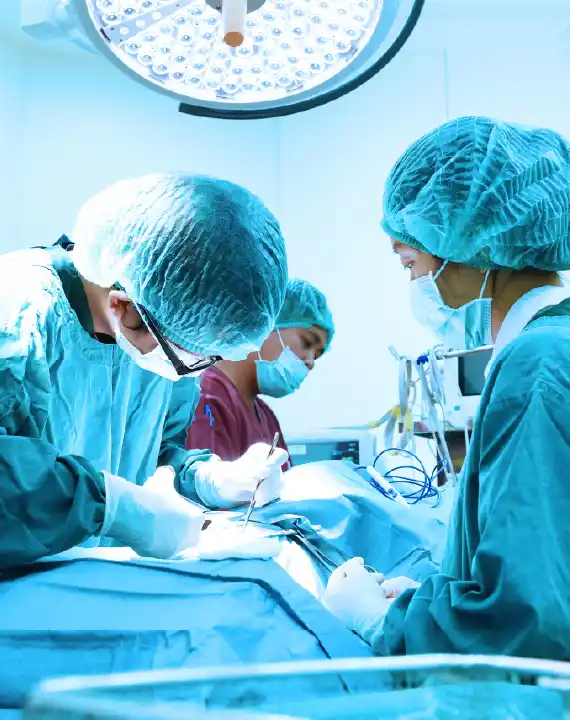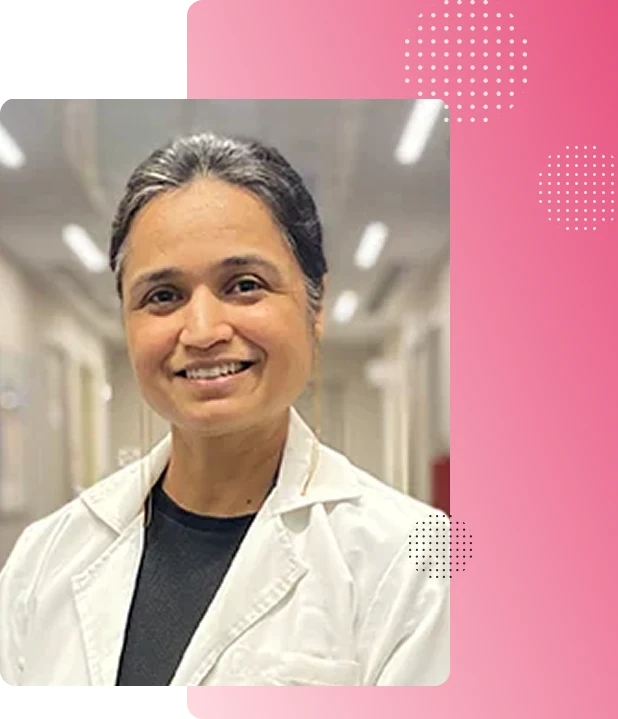Preparation
Pre-surgical evaluation (blood tests, imaging, ECG). Fasting for several hours before surgery.
Menstrual disorders are problems that change how regular, long, or heavy your period is. Changes that happen from time to time are normal, but if they happen a lot or are very bad, they could be a sign of a medical problem.
A normal menstrual cycle lasts 21 to 35 days, and the bleeding lasts 3 to 7 days. Any variation from this pattern, such as skipped periods, extremely heavy flow, unpleasant cramps, or intermenstrual spotting, is seen as abnormal.
Studies show that more than 30% of women in India have some kind of menstruation disease during their reproductive years. Sadly, a lot of people ignore these signs or try to treat them themselves, which can make hormonal imbalances worse or hide problems like thyroid disorders, PCOS, fibroids, or endometriosis. Getting treatment for menstruation problems in Gurgaon as soon as possible makes sure that any hormonal or structural cause is found and treated before it impacts your health or fertility.
There are several kinds and levels of severity of menstrual abnormalities. Some of the most frequent kinds are:
Many women get mild cramps during their periods. But if your discomfort is bad enough to make it hard to go about your everyday life, it could be secondary dysmenorrhea, which is commonly caused by endometriosis, fibroids, or pelvic infections. A gynaecologist in Gurgaon can help find and treat the underlying problem with medicine, hormone therapy, or procedures that are not very invasive.
Heavy or long-lasting menstrual flow that lasts more than 7 days or needs frequent pad changes might cause anaemia and tiredness. In Gurgaon, treatment for heavy periods frequently means finding and fixing the underlying problems that cause them, like uterine fibroids, hormone abnormalities, or thyroid problems. The treatment may involve medication, hormonal therapy, or surgical procedures such as hysteroscopic excision of fibroids, depending on the severity of the condition.
If your menstrual cycle exceeds 35 days or you have fewer than 9 periods a year, it may signal hormonal irregularities such as polycystic ovarian syndrome (PCOS) or thyroid dysfunction. Early action on such irregularity can help prevent bigger concerns from developing within the organs. Irregular periods treatment in Gurgaon can help restore hormonal balance and even improve fertility outcomes.
The complete absence of menstruation, other than during pregnancy, breastfeeding, or menopause, suggests the presence of conditions like premature ovarian failure, stress, or significant weight changes.
These conditions cause mood swings, bloating, headaches, and irritability before menstruation. Severe PMS (called PMDD – Premenstrual Dysphoric Disorder) requires medical management and lifestyle modifications.
Hormonal, structural, and lifestyle factors can all cause menstrual problems. The most common reasons are:
If you have any of the following, you should see a menstrual disorder expert in your area:
If you ignore these signs, you could have anaemia, infertility, or make your underlying gynaecological problems worse.

Any experienced gynaecologist in Gurgaon will start the diagnosis of menstruation disorders by taking a full medical history, doing a physical exam, and looking at the pelvis. Based on what you've told us about your symptoms, we may suggest the following tests:

The nature of the problem, your age, and whether or not you want to get pregnant all play a role in how you treat it. The goal is to get things back to normal, ease symptoms, and stop problems from happening.
For holistic and safe care, always consult the best gynecologist for menstrual problems in Gurgaon, who can guide you with personalised treatment plans.
Early diagnosis and treatment of menstrual disorders can:
Timely irregular cycles and fertility management can also increase the chances of natural conception and prevent complications in future pregnancies.
Treatment for menstrual disorders typically includes hormonal therapies such as oral contraceptives and progestins, (NSAIDs) for pain and bleeding control.
fibroids, endometriosis, uterine prolapse, cancer, or heavy bleeding.
total, partial, or radical hysterectomy.
Robotic-Assisted, Laparotomy, or Laparoscopic Ovarian Cystectomy.
age, medical history, and overall health.
Pre-surgical evaluation (blood tests, imaging, ECG). Fasting for several hours before surgery.
May be done in the lower abdomen, through the vagina, or with small camera-guided incisions.
Incisions or vaginal openings are sutured. Sterile dressing is applied.
Hospital stay usually ranges from 1–3 days (may be shorter with minimally invasive surgery).
Periods causing endometriosis
Help your Teen; To manage period symptoms
Myths and Facts about Menses
Here are some frequently asked questions
